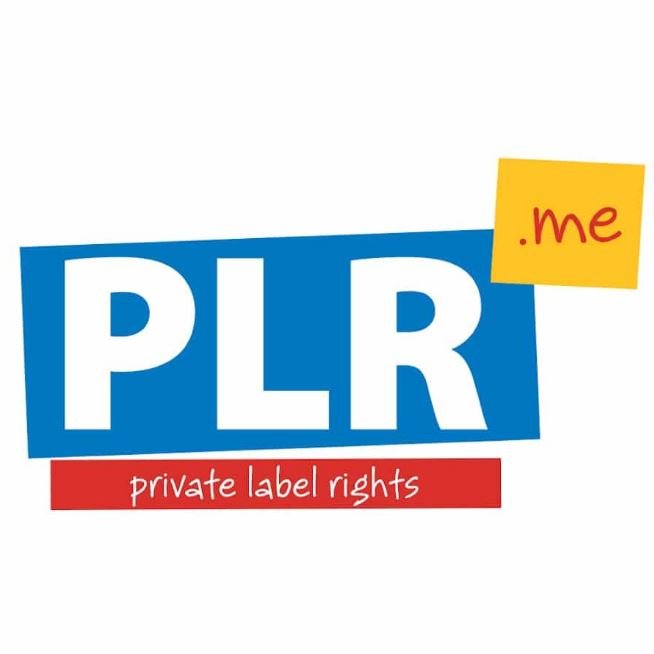If you are looking at earning above the average livable wage rate, working on a job that pays $30 per hour will not be a bad idea.
Besides, according to the Bureau of Labor Statistics, the average American earns approximately $30 per hour. This is about double the average livable wage of $16.54 per hour. However, what is the best jobs that pay this wage rate?
You could get paid $30 per hour for working on freelance jobs as a web developer, graphic designer, editor or writer, and virtual assistant. Alternatively, you could take up traditional jobs such as a police officer, subway operator, lighting technician, logistics manager, and many others to get paid up to $30 per hour.
$30 Per Hour Side Hustle Ideas Without A Degree
While most jobs typically do not require a degree, you will generally have to attain some skills to perform well in them.
If you want to land a job that could pay up to $30 per hour but don’t know which will be best for you, keep reading this article, as I’ll be sharing my top picks of the best jobs that pay this rate.
My choice of the ten best jobs that pay $30 per hour:
1. Lighting Technician

If setting up, rigging, operating, monitoring, and repairing lighting equipment sounds piques your interest, you can consider working with a lighting crew as a lighting technician. Doing this will earn you above $30 per hour, as the average lighting technician makes about $35 per hour.
As a lighting technician, you’ll typically have to set up and secure lighting equipment for events in churches, concerts, TV shows, etc. You will generally be responsible for transporting, setting up, and taking down all lighting equipment before and after an event.
You don’t need a degree to start. However, before working as a lighting technician, you will have to take classes in a technical theater. To help you learn the skills you need, you can start by working as a stagehand, production assistant, or assistant lighting technician while gaining experience.
However, with some years of quality experience tucked in your pocket, you could advance to handle events of your own or become a technical director.
You can use the help of job search websites like Indeed, Ziprecruiter, etc., to look for job opportunities. LinkedIn is also a great place to leverage your connections to get jobs.
2. Police Officer

Maintaining order in our society entails that some persons must stay responsible for putting offenders in their place and ensuring everyone complies with the law. The police have this as their task to perform. If you’d love to maintain public order, you can become a police officer and earn an average pay of about $31 per hour.
Working as a police officer entails responding promptly to emergencies, patrolling crime-prone areas, arresting suspected persons, ensuring drivers don’t beat traffic, etc. In general, you will be concerned with maintaining public order.
While having a college degree is not necessary to be hired as a ground-level police officer, you should get a college degree if you have plans to rise to higher ranks.
Your chance of being recruited into some departments in the police force increases if you have some volunteer experience. Like having worked as a security guard. Also, you could quickly get recruited into high positions like drug enforcement officials if you have served in the military.
However, you’ll have to attend the police academy if you’re a recruit. And you will have to complete hours of training and rigorous physical tests that will prepare you mentally and physically for the job.
3. Subway Driver

Remember the voice you heard on the subway train giving those announcements while in transit, telling you how to stay safe and informing you of any delays? That was the subway driver, and you can consider becoming one to earn about $33 per hour.
As a subway driver, you’ll have to know how to operate subway trains, elevated trains, or trams. Your job will generally involve ensuring passengers board and alight trains safely, looking out for warning signals, making announcements to passengers on the train, and ensuring passengers’ safety when emergencies arise.
Getting started as a subway driver requires at least a high school diploma since most companies require this. However, when it comes to the skill set you require to do well on the job, you only need some really good driving experience.
If you’ve previously worked as a public bus or taxi driver, you should already have a good deal of the required skills up your sleeves. Notwithstanding, you must complete a subway operator training program before becoming a subway driver. This training can take up to 6 months. Afterward, you’ll be well-versed in operating, troubleshooting, and giving reports in transit.
You can apply to local transit companies to get a job as a subway operator. These companies usually have their training programs to ready you for the job. However, having prior driving experience as a bus or cab driver is a plus. Additionally, most companies will require that you have a good vision and pass their background checks and drug tests.
4. Logistics Manager

Logistics managers are one of the reasons why your goods get to you safely, on time, and in good condition. The average wage rate of a logistic manager is about $45 per hour, and those with good experience get up to $75 per hour. If you have a knack for management and supervision, you can consider taking on this job.
Your job as a Logistics manager will generally stir around managing the people and processes involved in how a company transports, stores, and distributes its goods. You will coordinate different departments and facilities, ensure budgets are strictly kept, ensure compliance with government regulations, and more.
To quickly get a job as a logistics manager, you’ll need a college degree in business or a related field. If you don’t have this, you can still land this job with your high school diploma and at least five years of experience.
If you don’t have a college degree, you can build your portfolio of skills by starting with positions that will widen your knowledge of the logistics business. Working as a forklift operator, receiving clerk, or inventory controller are good ways to begin. This will sharpen your decision-making skills when you eventually become a logistics manager.
In addition, you want to take courses that will enhance your communication and build your management skills.
5. Power Dispatcher

One of the essential personalities behind the electric power that gets to you is the power dispatcher. With good math and tech skills from high school, you can get a job as a power dispatcher. Power dispatchers earn an average of about $43 per hour, which is way above the livable income line.
As a power dispatcher, your job will involve monitoring and controlling equipment for power distribution. You will also have to take data and keep records of operating information to assist with managing electric power distribution.
To become a power dispatcher, you should have a high school diploma. With good math and technology skills, you can quickly get started by completing a training program that’ll prepare you to become a power dispatcher. This training is usually given on the job by employers.
You can get employed as a power dispatcher in several places. Power plants, Nuclear plants, railway, and transportation companies need your services as a power dispatcher. You could even work for the government.
Additionally, working as a power dispatcher affords you the opportunity to grow. After some years of experience, you could opt for higher positions like consultancy and supervisory roles. Alternatively, you could go for better-paying opportunities like nuclear power plant operator.
6. Freelance Writer/Editor

We live in the 21st century, where the internet seeks to answer every imaginable question, so writing has become an ever-in-demand skill. If putting words together strikes a chord for you, then you can earn up to $30 and even more from working as a freelance writer or editor.
Getting into freelance writing means creating content for websites, white papers, blogs, books, etc. And if you choose to do less and work as a freelance editor, your job will typically be to edit already written content.
Working freelance allows you to work from anywhere and for clients who don’t need your degree. Your job samples and great reviews from others usually suffice as good enough proof of your credibility. However, although you don’t need a degree, you need tons of discipline, self-drive, and the ability to keep to deadlines.
To get freelance writing jobs, you can begin by creating a comprehensive portfolio containing samples of your written work. You can then sign up on freelance platforms like Fiverr, Freelancer, or Upwork.
These freelance sites expose you to many potential clients, and while getting jobs may not be easy at first, after landing your first few and getting good reviews, landing subsequent jobs should be more accessible.
7. Web Designer

Using computer codes to tell the computer what to do is the stuff of programmers. If you are a geeky person and the seemingly endless streams of letters, numbers, and symbols in computer codes don’t bore you, you can consider working as a web designer. The average web designer earns an hourly rate of about $35.
Working as a web designer means planning, designing, and creating websites from scratch. This typically involves using codes to design and create websites’ front and backend components. You may not necessarily have to build websites from scratch all the time and may need to update existing sites.
Again, working as a web designer means you can work freelance. So you won’t need a degree to become a web developer. However, you want to be a master at using the programming languages required for this job. You can utilize any of the tons of free or low costing resources available on the internet for this or join a boot camp.
To begin landing jobs, you can sign up on a freelance platform like Fiverr or Upwork. Freelance sites let you create your profile and bid for jobs. Before signing up on a freelance site, you want to build a portfolio containing as many samples of your work as possible.
Moreover, getting your first set of jobs may not be easy, and you don’t have to wait to be hired to build a portfolio. You can build websites for friends and take up free projects to build your portfolio. Alternatively, you can look for jobs on social media platforms like LinkedIn.
9. Site Engineers

Buildings are part of everyday life, and you can’t just rule out that we won’t run out of building projects anytime soon. You can consider taking up a job as a site Engineer. The average site Engineer earns about $30 per hour.
If you are considering working as a site engineer, you want to get ready to go through, adjust, and approve building plans. You’d also ensure that the building projects you monitor are built to standard and following building codes. This will typically include monitoring and recording the findings of your inspection.
The site engineer role does not necessarily need a college or high school degree. But then, not having any of these means you’d need to have bagged some years of work experience to qualify to be considered for the job. Thinking about how to start? Some good ways to begin are by registering for a mentorship program or taking a construction job.
You will also need a license, although this is not a prerequisite in every state. However, It’s best to be safe and get one. You want to get certified by passing the B1 building inspector exam to increase your credibility and make it easy for you to land jobs.
10. Real Estate Agent

If convincing people to shred their pockets and wallets to make purchases is something you feel you can do well at, then you should consider helping individuals and real estate agencies sell off their properties. Not everybody is ready to sit through the stress of paperwork in acquiring property, and such people will not mind paying you your commissions.
On average, you can earn up to $30 per hour and more working as a real estate agent. Your job as a real estate agent will typically involve helping people purchase properties and directing them through all the pen and paperwork that goes on in between.
You can sign up for a real estate education course to start as a real estate agent. Doing this should prepare you to take the real estate exam.
While getting on your feet may take some time when starting, it could pay in the long run. But just so the burden of starting is not crippling, you can opt for an emergency fund. This will come in handy, especially in your first year.
How Can I Make 30 Dollars An Hour Without A Degree?
You can make up to 30 Dollars an hour without a degree working on skill-centered jobs that don’t necessarily need a degree as a Prerequisite. You can also make this much by working freelance. Jobs like lighting technician, real estate agent, power dispatcher, and logistics manager are traditional jobs that pay up to $30 per hour without a degree.
With some years of training and experience, completing a course, or taking a licensing examination, you should be ready for any of these jobs. However, freelancing jobs like graphic designing, writing, and editing are also great alternatives you can consider venturing into.
Is $30 Per Hour A Good Wage?
$30 per hour is a good wage. The average livable wage rate in the United States is $16.54, and $30 per hour is roughly double this. Besides, making this much puts you on par with the average American since the average American earns a wage rate of $30 per hour. On the global front, earning this much means you are rich.
Ultimately, whether or not this is a reasonable wage rate depends on your spending habits. But on average, $30 per hour is good enough money to live on.
How Can I Make 30 Dollars An Hour From Home?
Freelancing is the easiest way to make 30 Dollars an hour from home. Doing freelance jobs like graphic design, transcription, language translation, and writing and editing can earn you up to this and more. You can also turn to online tutoring, delve into web design, or become a blogger, although this typically takes some time to begin making money.
While some jobs pay below the average livable wage rate, there are also those that pay above it- like those that pay up to $30 per hour and more. Earning up to $30 per hour is possible, but what jobs pay this much? I have put together this list of jobs that pay at least $30 per hour so you can decide which is most suitable for you.








